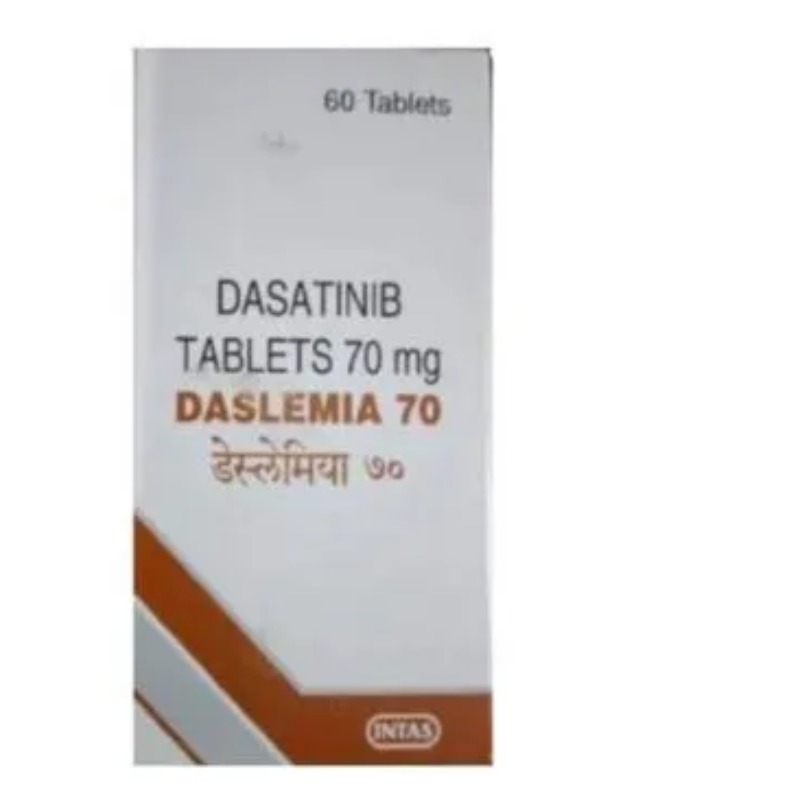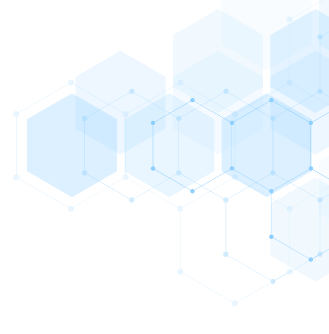DESCRIPTION
MECHANISM OF ACTION
• Potent inhibitor of the Bcr-Abl kinase and Src family of kinases (Src, Lck, Yes, Fyn), c-Kit, and PDGFR-β.
• Differs from imatinib in that it binds to the active and inactive conformations of the Abl kinase domain
and overcomes imatinib resistance resulting from Bcr-Abl mutations.
ABSORPTION
Dasatinib has good oral bioavailability. Rapidly absorbed following oral administration. Peak plasma concentrations are
observed between 30 minutes and 6 hours of oral ingestion.
DISTRIBUTION
Extensive distribution in the extravascular space. Binding of parent drug and its active metabolite to plasma proteins in
the range of 90%–95%.
INDICATIONS
• FDA-approved for the treatment of adults with chronic phase (CP), accelerated phase (AP), or myeloid or lymphoid blast (MB or LB) phase Ph+ CML with resistance or intolerance to prior therapy incuding imatinib.
• FDA-approved for the treatment of adults with Ph+ ALL with resistance or intolerance to prior therapy.
• FDA-approved in newly diagnosed adult patients with Ph+ chronic
• phase CML.
• FDA-approved in pediatric patients one year of age and older with Ph+ CML in chronic phase.
• FDA-approved in combination with chemotherapy in pediatric patients one year of age and older with newly diagnosed Ph+ ALL.
DOSAGE RANGE
• Chronic phase CML, adults: 100 mg PO once daily. A lower dose of 50 mg PO once daily can be used, as it is well tolerated and active.
• Accelerated phase CML, myeloid or lymphoid blast phase CML, or Ph+
• ALL, adults: 140 mg PO once daily.
• Chronic phase CML, pediatrics: starting dose based on body weight.
DRUG INTERACTION 1
Dasatinib is an inhibitor of CYP3A4 and may decrease the metabolic clearance of drugs that are metabolized by CYP3A4.
DRUG INTERACTION 2
Drugs such as ketoconazole, itraconazole, erythromycin, and clarithromycin decrease the rate of metabolism of dasatinib, resulting in increased drug levels and potentially increased toxicity.
DRUG INTERACTION 3
Drugs such as rifampin, phenytoin, phenobarbital, carbamazepine, and St. John’s Wort increase the rate of metabolism of dasatinib,
resulting in its inactivation and lower effective drug levels.
DRUG INTERACTION 4
Solubility of dasatinib is pH-dependent. In the presence of famotidine, PPIs, and/ or antacids, dasatinib concentrations are reduced.
SPECIAL CONSIDERATIONS
• Oral dasatinib tablets can be taken with or without food but must not be crushed or cut.
• Important to review patient’s list of medications, as dasatinib has several potential drug–drug interactions.
• Patients should be warned about not taking the herbal medicine St. John’s Wort while on dasatinib therapy.
• Monitor CBC on a weekly basis for the first 2 months and periodically thereafter.
• Use with caution when patients are on aspirin, NSAIDs, or anticoagulation, as there is an increased risk of bleeding.
• Closely monitor electrolyte status, especially calcium and phosphate levels, as oral calcium supplementation may be required.
• Sexually active patients on dasatinib therapy should use adequate contraception.
• Avoid Seville oranges, starfruit, pomelos, grapefruit, and grapefruit juice while on dasatinib therapy.
• Patients should be closely monitored for depressive symptoms and suicide ideation while on therapy.
• Pregnancy category D. Breastfeeding should be avoided.
TOXICITY 1.
Myelosuppression with thrombocytopenia, neutropenia, and anemia.
TOXICITY 2
Bleeding complications in up to 40% of patients resulting from platelet dysfunction.
TOXICITY 3
Fluid retention occurs in 50% of patients, with peripheral edema and pleural effusions. Usually mild-to-moderate severity.
TOXICITY 4
GI toxicity in the form of diarrhea, nausea/vomiting, and abdominal pain.
TOXICITY 5
Fatigue, asthenia, and anorexia.
TOXICITY 6
Elevations in serum transaminases and/or bilirubin.
TOXICITY 7
Hypocalcemia and hypophosphatemia.
TOXICITY 8
Cardiac toxicity in the form of heart failure and QTc prolongation. Occurs rarely (3%–4%). Pulmonary hypertension can also occur (5%).
TOXICITY 9
Insomnia, depression, and suicidal ideation.
SPECIFICATION


Login To Comment